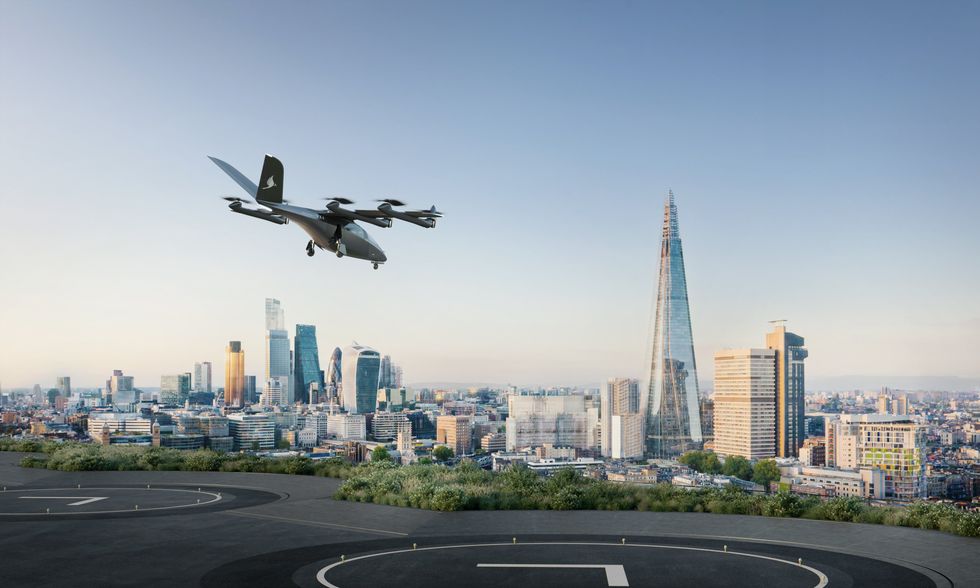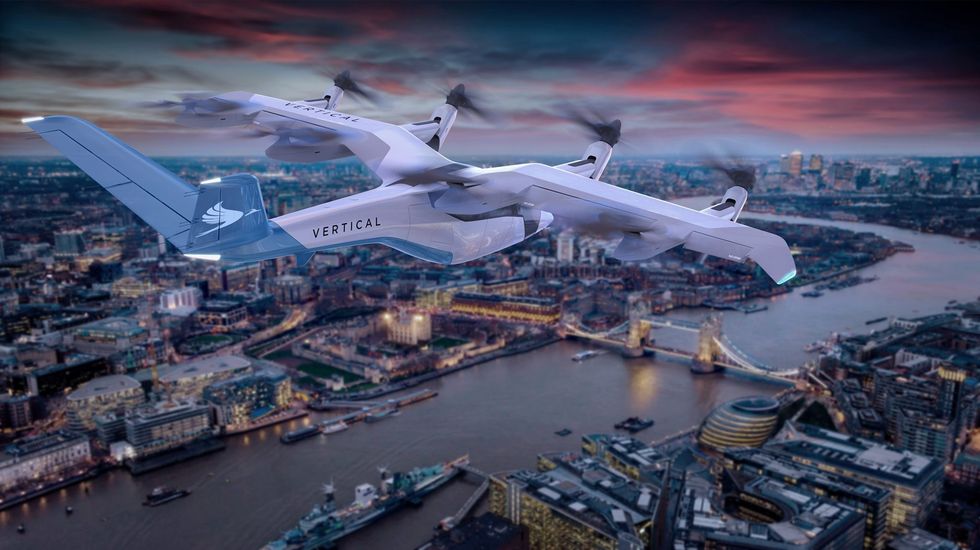'Cutting edge battery technology' has helped flying taxis develop quickly
Don't Miss
Most Read
Latest
Flying taxis could be seen above roads as soon as 2026 with a new Government action plan suggesting the industry could add £45billion to the economy by the end of the decade.
As part of the new Future of Flight action plan, flying taxis, critical 999 care deliveries and crime-fighting drones could be a reality by 2030.
The new Government roadmap details how drone technology could boost the UK economy by £45billion, with lofty plans unveiled.
The first piloted flying taxi flight could take place within two years and regular services by 2028.

Flying taxis could be seen across the UK within years
VERTICAL AEROSPACE
Demonstrations of autonomous flying taxis without pilots on board could be seen as soon as 2030 – transforming how people and goods are transported.
Anthony Browne, Aviation and Technology Minister, said: “Cutting-edge battery technology will revolutionise transport as we know it – this plan will make sure we have the infrastructure and regulation in place to make it a reality.
“From flying taxis to emergency service drones, we’re making sure the UK is at the forefront of this dramatic shift in transportation – improving people’s lives and boosting the economy.”
It comes as Brown visits Vertical Aerospace in Bristol – one of the UK companies making flying taxis, with the Government describing it as the “cutting edge of innovation”.

VERTICAL AEROSPACE
Flying taxis are already undergoing authorisation with the Civil Aviation Authority (CAA) and have been aided by rapid advances in battery technology.
Sophie O’Sullivan, Head of Future Safety and Innovation at the UK Civil Aviation Authority, said this could be the biggest revolution since the invention of the jet engine.
She added: “Drones, eVTOL and other different vehicles have the potential to change transportation options forever.
“We welcome the firm direction the Government’s Future of Flight action plan provides for the industry as it continues to innovate.
“Our role in this bright future of aviation will be enabling technological advances and providing regulatory support while ensuring that all forms of new aviation technology enjoy the same high safety standards as traditional aviation.”
It is hoped that the new roadmap will allow smaller aerodromes to set out how they can operate as vertiports, which allow electric vertical take-off and landing (eVTOL) aircraft to operate.
Stephen Fitzpatrick, founder and CEO of Vertical Aerospace, said: “The UK has a long heritage in aerospace and the publication of this plan sets out how we will lead the next revolution of flight.
“With Government and business working together, we can unleash the huge economic, environmental, and social benefits of zero emissions flight globally.
LATEST DEVELOPMENTS:

The Vertical Aerospace VA-1X
VERTICAL AEROSPACE
“Vertical is hugely proud to be at the forefront of leading this new chapter.”
Drones are already being used by West Midlands Police to tackle violent crime and antisocial behaviour, while NHS staff are also being supported by drones delivering samples across sites.














